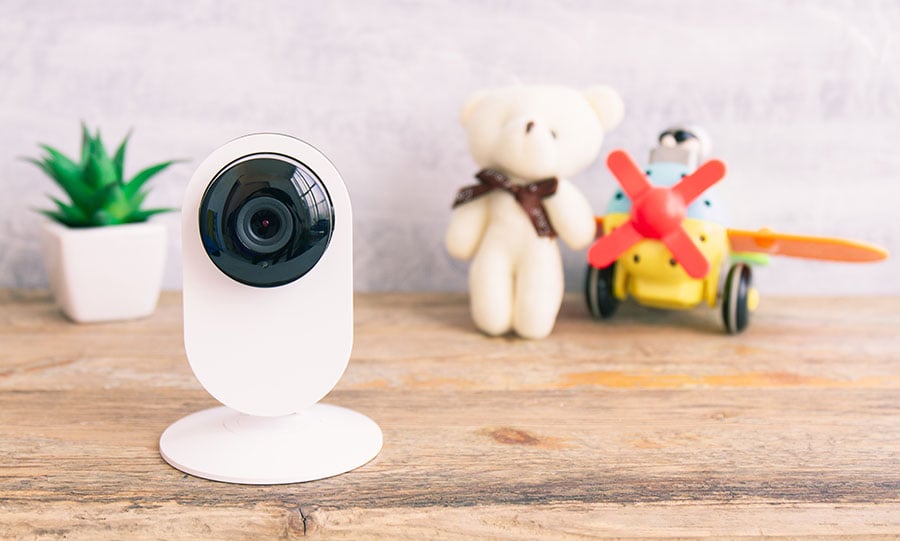
The Lamber Goodnow Legal Team Wants to Keep You Safe — Know Your Rights When It Comes to What is Legal and Illegal When it Comes to Spy Cams in a Home for Rent
Whether you dream about sand between your toes, bundling up from the chill of falling snow, or just staying in with takeout and a binge-worthy show, everyone loves a good vacation. In fact, in 2015, Americans took 1.7 billion vacations. A vacation becomes even more magical when you can rent a variety of interesting and unique homes in which to create such memories.
However, while in the midst of making exciting plans and envisioning pure relaxation, how many of us take into account that the rental property owners may be watching?
For some renters this concern was justified, as reports have begun to surface of guests finding hidden cameras in clocks and mesh bags at their vacation rentals in Las Vegas and Florida. Additionally, a woman in California who found a hidden camera in her rental property has filed suit in federal court against Airbnb and the property owners.
As instances of hidden cameras in vacation rentals become more commonplace, it has people wondering if this practice is legal.
The answer, however, is not black and white and depends on many different factors. The key factor, however, is when the renter has a reasonable expectation of privacy.
It is important to note that the expectation of privacy a person has from hidden rental cameras is not a Fourth Amendment issue. The Fourth Amendment is a provision to protect people’s right to privacy from Government intrusion. In this case, intrusions by private individuals are exempt from Fourth Amendment protections and would be found in privacy law.
Privacy law determines in which places and in which activities a person has the legal right to privacy. This legal right to privacy is not absolute, however, it must also be “reasonable.” This means that the average person would have been offended at being intruded upon in the place or situation.
There is no overriding federal law on the issue, so renters must look at the state and local privacy laws in which the rental properties are located. Most state laws permit landlords to install cameras in “public areas” for security reasons. Examples of public areas would be outdoor areas and entrances/exits of the property. However, areas in which a person has a reasonable expectation of privacy, such as bedrooms and bathrooms are off limits.
Arizona’s law on the matter states, in part:
“A. It is unlawful for any person to knowingly photograph, videotape, film, digitally record or by any other means secretly view, with or without a device, another person without that person’s consent under either of the following circumstances:
- In a restroom, bathroom, locker room, bedroom or other location where the person has a reasonable expectation of privacy and the person is urinating, defecating, dressing, undressing, nude or involved in sexual intercourse or sexual contact.
- In a manner that directly or indirectly captures or allows the viewing of the person’s genitalia, buttock or female breast, whether clothed or unclothed, that is not otherwise visible to the public.
- It is unlawful to disclose, display, distribute or publish a photograph, videotape, film or digital recording made in violation of subsection A of this section without the consent or knowledge of the person depicted.
- This section does not apply to:
- Photographing, videotaping, filming or digitally recording for security purposes if notice of the use of photographing, videotaping, filming or digital recording equipment is clearly posted in the location and the location is one in which the person has a reasonable expectation of privacy.”
A.R.S. 13-3019 (criminal code). Violations of the above law are class 4, 5 to 6 felonies, which can be punished by imprisonment of six months to three years. Additionally, underscoring the significance of the right of individuals to be free of surveillance, Article II, Section 8 of the Arizona Constitution guarantees citizens’ rights not to be disturbed in their private affairs or homes without authority of the law. Although there is not a private right of action to sue under the Arizona Constitution, it does provide the authority of the state to regulate in this area and makes an important policy pronouncement on the significance of the right to privacy. Finally, in Arizona as in most states, aggrieved individuals have the right to sue civilly for money damages for invasion of privacy. See, e.g., Valencia v. Duval Corp., 132 Ariz. 348, 350 (1982) (Arizona recognizes the tort of intrusion upon seclusion).
The law clearly states that no camera may be placed where a person has a reasonable expectation of privacy without the person’s consent.
Where privacy laws get sticky, however, is when a rental owner places a camera in the main living space of a vacation rental. Unlike hotels, which legally cannot have cameras inside and the main living space is many times also the bedroom; a rental home may be a large house where bedrooms are separate from main living areas. The owner of a rental house may argue that they have placed the camera in this area for security reasons to ensure that the renters do not damage or over-occupy the property. However, many renters on vacation may use the main living area as an extension of the bedroom and believe that they have a reasonable expectation of privacy.
This was the case with the woman suing Airbnb for negligence and the California vacation rental owners for invasion of privacy. She claims that she believed the apartment to be a private space, so she frequently was nude in the living room and spoke about sensitive personal and financial matters with her travel companion that the camera might have picked up.
Airbnb’s policy says:
“We expect hosts to respect their guests’ privacy. You must notify your guests about any security cameras or other surveillance devices at or around your listing, and get consent where required. The use of surveillance equipment may also be against the law in some places, so make sure you understand your local regulations.”
Although Airbnb’s policy makes rental owners consult their local laws and notify their guests of any cameras at the property, they can do little in the way of enforcement. This may open the door to negligence claims against the company with people arguing that Airbnb has an obligation of ordinary care to its renters, which has been breached by their inability to investigate their rental owners.
Airbnb spokesman Nick Shapiro explains that if renters find a camera that was not disclosed to them, Airbnb will immediately pay for the renters to move to a hotel and will investigate the matter.
As the vacation rental business continues to grow, privacy issues are only going to become more important and relevant. If you have been envisioning your dream vacation, make sure you take the necessary steps to ensure your privacy. Check the state’s privacy laws and if the rental company complies with those laws. Check the rental property listing to see if it mentions cameras on the property. If the listing does not mention cameras, make sure to inquire with the property manager or owner. If you do find a camera inside your rental property that was not disclosed to you, pick up the phone and call the police and the rental company so that you may resolve the issue and get back to your much deserved rest and relaxation.

